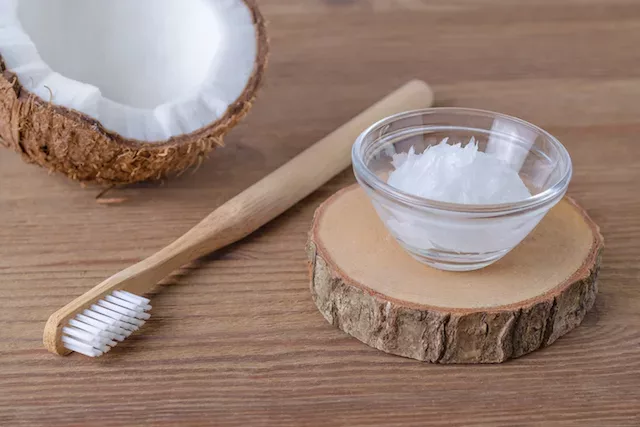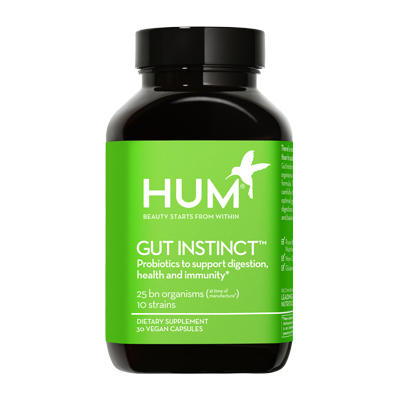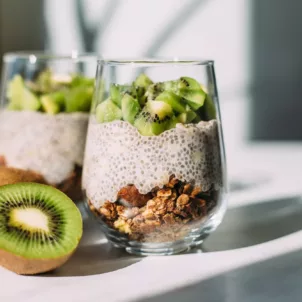Learn about the surprising connection between oral health and gut health. We explore the link between gum disease and digestive issues, and provide tips for improving both your oral and gut health.
Albeit somewhat of a wellness buzzword, gut health is not a trend. With its connection to our immune system and both the emotional and cognitive centers of the brain, it’s a vital component of our well-being. “The gut microbiome is a collection of trillions of microorganisms and is essential to your health as it performs many different functions, including regulating digestion and metabolism, housing a major portion of the immune system, aiding in producing hormones and vitamins, and more,” says Dr. Rachel Crowley, a licensed naturopathic medical doctor.
While eating the right foods for gut health and taking probiotics are important facets of supporting proper microbiome balance within the gut, there’s something else we need to consider when thinking about what goes on in our gastrointestinal tract — and that is oral health.
The Microbiome
Just as there is a gut microbiome, there is also an oral microbiome, which Dr. Crowley says also contains a collection of microorganisms. “The situation is similar as the oral microbiome needs to contain a balanced and diverse flora, and must maintain a balance between good and bad microflora [or else] there can be an overgrowth of harmful bacteria that cause damage to the mouth and teeth, such as gum disease and tooth decay as well as affect overall health.”

With all of this in mind, Dr. Crowley says that the mouth is sort of like the gatekeeper to digestive health and, on top of keeping the gums and teeth healthy, also plays a key part in gut health, since it’s actually the beginning of the digestive tract. Although we don’t often think of the mouth and gut microbiomes as interconnected, the bacteria in the mouth can impact the bacteria in the gut. And, when it comes to the top two places where microorganisms inhabit the body, Dr. Lana Butner, a board-certified naturopathic doctor, nutritionist, and acupuncturist says the oral cavity, which includes the gums, the front of the tongue, and teeth, and the oropharynx (the tonsils, back of the tongue, and the throat) is actually a close runner up to the gastrointestinal tract, so its balance and health should definitely get as much attention as the gut. “To the untrained eye, these two seemingly different systems are actually anatomically connected, making up what is referred to as our alimentary canal,” Dr. Butner explains. “This canal is quite literally the entire passageway from which food travels, therefore maintaining microbiome balance is crucial for the health and proper functioning of both, as one greatly affects the other.”
Up ahead, we explore oral health and what it means for gut health, plus the benefits of a healthy mouth and gut and how that factors into overall well-being.
The Connection Between Oral Health and Gut Health
The oral microbiome is an ecosystem of microorganisms that, if balanced and free of bad bacteria, can promote healthy gums and overall strong oral health. With that being said when it is imbalanced and bad bacteria gets involved, Dr. Crowley says oral bacteria is associated with systemic diseases as the bacteria can easily spread throughout the body through a few different avenues. The first, of course, is through swallowing saliva. Another is through the bloodstream via openings in the gum. “Once the [bad] oral bacteria reaches the gut, it can cause an imbalance in the gut microbiome leading to dysbiosis, inflammation, and systemic health issues,” says Dr. Crowley. She notes that some studies show that oral pathogens can actually change the oral microbiome and, therefore, also alter the gut microbiome.

The reason why oral health impacts gut health is because “whatever can negatively occur at the beginning of the alimentary canal will undoubtedly have an effect downstream,” says Dr. Butner. For example, gingivitis — which is a buildup of bacteria and plaque on the teeth and gums — can cause bleeding and small perforations within the gums that allow bacteria and other microbes to enter the systemic circulation and, therefore, negatively impact not just gut health but other areas of concern, including cardiovascular health. “Another example we consistently see in the clinic is thrush, which is an overgrowth of candida albicans (fungus) on the tongue and inner sides of the cheeks or the back of the throat,” Dr. Butner notes. “When we see thrush, we have a pretty good idea that candida is rampant within the system and that we need to get to work on eradicating the source.” While candida is common in the body, an overgrowth of the fungus can lead to major gut concerns, including ulcerative colitis and Crohn’s disease.
Tips for Improving Gum Health and Gut Health
Improving gut health starts with the gums (and the mouth in general). Here are all of the ways you can support a healthy gut microbiome through oral hygiene and lifestyle changes.
Flossing
There’s a reason why dentists recommend regular flossing. This practice can not only keeps the teeth and gums clean but can also help prevent gum health concerns like gingivitis, which can directly impact the gut microbiome. Dr. Butner recognizes that some might feel too busy to floss but stresses that this is one of the first steps toward a healthier mouth and gut. She advises using flossing sticks for a more accessible approach to flossing since they make it possible to floss while doing other activities.

Water Flossing
Using a water pick can up the ante with flossing. “It is fascinating to see what comes out of your mouth with this concentrated high-pressure water stream, even after brushing,” says Dr. Butner. “Using one of these is an absolute game-changer and will make you a convert immediately.”
Oil Pulling With Coconut Oil
“Coconut oil is antimicrobial and, by swishing coconut oil around in your mouth for three to ten minutes at a time, the oil is able to bind to the bacteria within your oral cavity by getting into some of the harder-to-reach crevices that your toothbrush bristles cannot reach,” Dr. Butner explains. She recommends also brushing after you finish oil pulling to ensure that the bacteria is fully removed from the mouth (and also to get rid of the greasy feeling on the teeth).

Mouth Taping
Mouth taping is exactly what it sounds like — taping the mouth shut and keeping it that way while you sleep. This viral TikTok trend is one of Dr. Butner’s favorite health hacks because it “helps to increase blood flow to the brain to help with cognition, energy, focus, and mental clarity.” However, there is an oral health component, too, since keeping the mouth taped shut while you sleep can maintain adequate moisture in the mouth, which Dr. Butner says “is critical for microbiome balance.”
Limit Sugar Intake
Cutting back on sugar isn’t just about preventing cavities. Dr. Crowley recommends this oral hygiene tip because sugar “can reduce diversity in the oral microbiome and increase dysbiosis in the gut microbiome,” both of which impact oral and gut health.
Take Supportive Supplements
Vitamins and minerals can also impact the gut and oral microbiomes, which is why Dr. Crowley recommends incorporating vitamin C, vitamin D, and zinc into your wellness regimen. “Vitamin C plays a vital role in the immune system, improving gum health as a deficiency in vitamin C can result in inflamed and bleeding gums,” she explains. Vitamin D also supports the immune system, and zinc actually aids in both oral and gut health. “Zinc can help maintain healthy gums and lower your risk of developing periodontal disease,” says Dr. Crowley. “It plays a role in gut health as it improved the intestinal barrier, too.”
The Benefits of a Healthy Mouth and Gut
Overall, the benefits of a healthy mouth and gut extend beyond just ensuring these two systems perform at peak levels — they ensure that important functions such as the immune system can also thrive, too. When oral health takes a turn for the worse, the gut can very easily be affected since the two are so interconnected. And, when gut health is compromised, everything from immune function to cognitive health can get thrown out of balance. Not to mention: The gut is vital in proper nutrient absorption, fat storage, and blood sugar regulation. When the gut is imbalanced, the skin (which is the body’s largest organ and can often showcase imbalances within the body) can also react, which might lead to concerns like dry skin, acne, eczema, inflammation, and more.
The great thing about maintaining oral and gut health is that the two relate to each other and, therefore, you can target both with simple oral hygiene practices like proper flossing and oil pulling as well as nutritional habits like taking supplements that support gut health and the oral microbiome. The moral of the story: Happy gums equals a happy gut.









